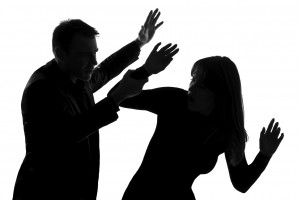 Domestic Abuse, or Domestic Violence, is defined by the Department of Justice as patterned abusive behavior in any relationship used by one partner to gain or maintain control of their intimate partner. There are many types of domestic abuse, many ways one partner may inflict suffering on another, and many, many people, especially women, who have endured the perverse arrangement that is an unsafe home. According to the National Coalition Against Domestic Violence, 20 people per minute are physically abused by an intimate partner. Domestic Violence accounts for 15% of all violent crime in the United States.
Domestic Abuse, or Domestic Violence, is defined by the Department of Justice as patterned abusive behavior in any relationship used by one partner to gain or maintain control of their intimate partner. There are many types of domestic abuse, many ways one partner may inflict suffering on another, and many, many people, especially women, who have endured the perverse arrangement that is an unsafe home. According to the National Coalition Against Domestic Violence, 20 people per minute are physically abused by an intimate partner. Domestic Violence accounts for 15% of all violent crime in the United States.
Types of Domestic Violence
Domestic Violence can manifest in several ways. A partner can engage in domestic violence by physically inflicting harm, including denying their partner medical care after a physical attack, and forcing them to submit to alcohol and/or drug use.
Sexual abuse, rape, marital rape, sexual coercion, and forcing sex after physical violence are all examples of domestic violence. Degrading sexual abuse in a marriage is no exception.
Neither does a marriage or intimate relationship permit emotional abuse–undermining the self worth and self esteem of an intimate partner is also considered domestic violence, as is poisoning a partner’s relationship with their child.
Domestic violence also includes economic abuse, defined by the Department of Justice as attempting to make an individual financially dependent by maintaining total control over financial resources, limiting their partner’s access to money, or forbidding access to school or employment.
Lastly domestic violence can appear in the form of psychological abuse. Any relationship that is tainted by a partner who stalks their partner, or uses threats, intimidation and fear to control their partner is abusive and will be considered so in court.
Thankfully, victims are not without resources: there are national hotlines, immediate emergency resources like 911 and the police, and in the severance stages of the abusive relationship, there is legal support.
If you’re pursuing custody of children or assets from the relationship, want a restraining order or want to engage in a civil lawsuit to claim damages from the emotional and physical abuse, a family lawyer will be your best resource. However, the complexity of the domestic violence case may also warrant your pressing criminal charges.
If you are engulfed in a relationship categorized by any of the abuse mentioned above, you can and should seek help. Be aware that severance is usually a trigger for a flare of violence. However, with the help of organized support and lawsuits you can escape the toxic existence and pull your life back from the torment. A good family lawyer will help you do so.
http://www.justice.gov/ovw/domestic-violence
http://www.ncadv.org/learn/statistics
http://www.courts.ca.gov/selfhelp-domesticviolence.htm




